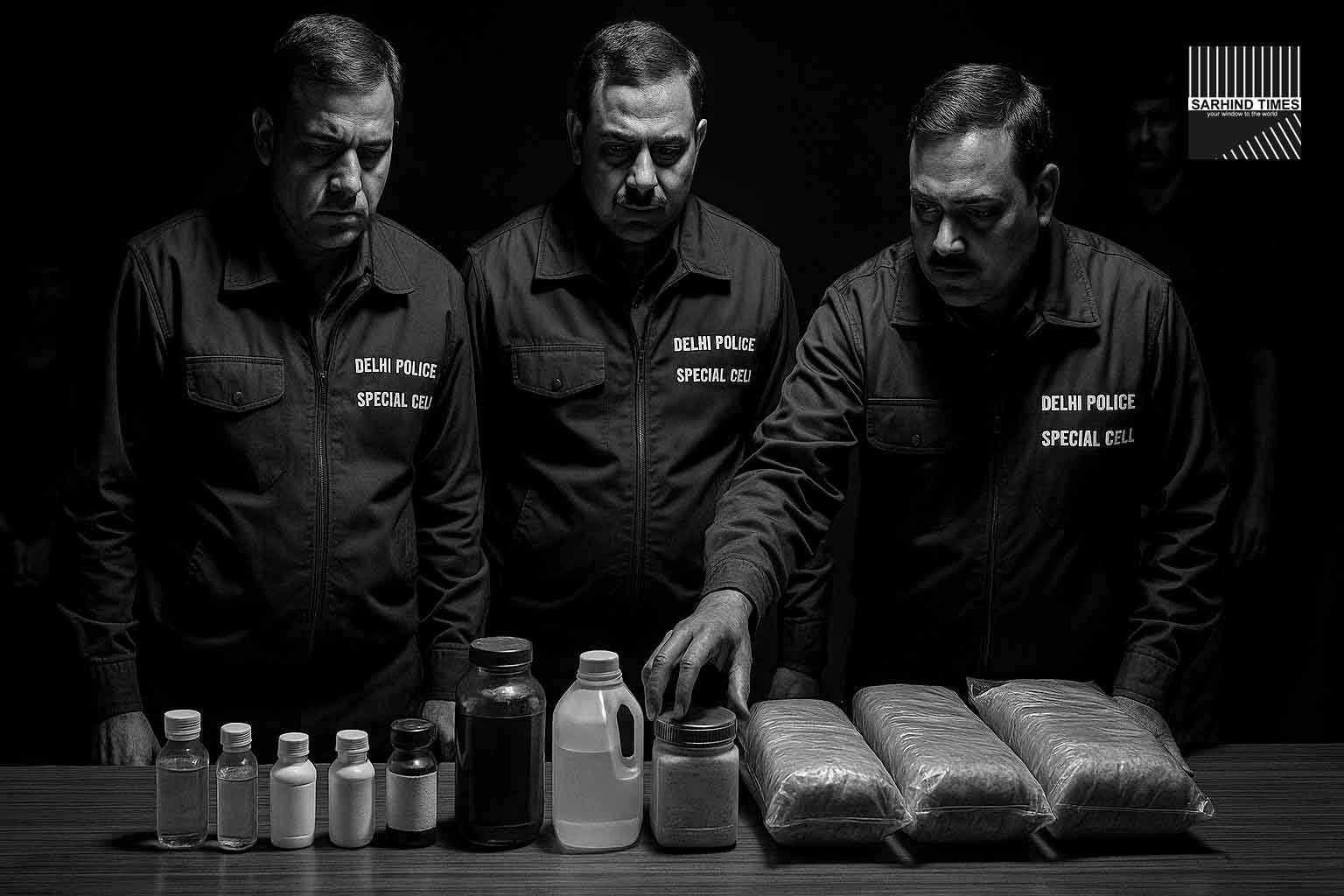Introduction: An Unlikely Suspect, A Serious Threat
In a significant breakthrough, the Delhi Police Special Cell has detained Kamran Qureshi, a 26-year-old typist from Rajgarh, on allegations of being linked to an ISIS-inspired terror module. The arrest underscores how extremist networks are recruiting from diverse social and professional backgrounds, and how seemingly ordinary individuals may be drawn into violent radicalization.
The Arrest & Seizure of Chemicals
According to senior officials, the Special Cell detained Qureshi late Wednesday night following a surveillance-led operation. During the raid, investigators recovered chemicals suspected to be used in improvised explosive device (IED) manufacture. While forensic tests are still underway, preliminary assessments indicate the materials could have been intended for small-scale, high-impact blasts.
The police believe Qureshi had been in touch with online handlers linked to ISIS-inspired networks, though direct ties to foreign operatives are still being verified.
Multi-State Investigations Underway
Authorities are expanding the probe across multiple states, tracking Qureshi’s communications, financial records, and digital footprint. Several law enforcement agencies—including the National Investigation Agency (NIA)—are expected to coordinate in tracing whether Qureshi was part of a larger cell or operating in isolation under online influence.
Senior officers suggested that sleeper modules may be in the early stages of planning and that Qureshi’s detention could help prevent potential attacks.
A Typist’s Radical Turn: From Routine to Extremism
The fact that Qureshi worked as a typist in a small Rajgarh office has stunned both locals and police officials. Neighbors described him as “quiet and reserved,” with little to suggest radical leanings. Investigators suspect that online radical propaganda and encrypted communication platforms may have played a role in his indoctrination.
This case reflects a disturbing trend: recruitment of individuals outside conventional “terror profiles.” Radical groups are increasingly leveraging digital platforms to radicalize and instruct individuals in bomb-making, cyber coordination, and lone-wolf style operations.
Law Enforcement Response & Public Safety
The Delhi Police emphasized that the arrest was preventive as well as investigative, ensuring that any threat is neutralized before escalation. “The seizure of chemicals linked to IEDs shows that the suspect had crossed a threshold beyond ideological radicalization. Active operational intent was being explored,” an officer said.
The public has been urged to remain vigilant but not alarmed. Authorities stressed that intelligence-based surveillance remains strong and that community reporting is crucial to counter radical threats.
National Context: India’s Fight Against Radical Terror
India has been a target of ISIS-inspired propaganda for years, though large-scale attacks have been thwarted by proactive policing and intelligence coordination. Cases like Qureshi’s highlight the evolving challenges of terrorism in the digital age:
- Radicalization online instead of physical networks.
- Individual actors rather than organized militant groups.
- Use of common chemicals and easy-to-source materials for IED attempts.
Security experts note that India’s counter-terrorism efforts must increasingly focus on cyber surveillance, community awareness, and early intervention.
Political & Social Reactions
The case is likely to spark debate over:
- Digital regulation—how to monitor online spaces without infringing on civil liberties.
- Community responsibility—the need for families and communities to identify early signs of radicalization.
- Law enforcement accountability—ensuring that counter-terror actions remain transparent and within legal frameworks.
Closing Thoughts: Preventing Lone-Wolf Radicalization
The detention of Kamran Qureshi may have prevented a dangerous attack in its planning stages. But it also poses a deeper question: how can a young professional from a small town slip into the grip of extremist ideology unnoticed?
The case is both a relief—since a potential threat was neutralized—and a warning that radical networks continue to evolve. As investigators widen their net, the outcome of this probe may shape India’s counter-terror strategies in the years ahead.
#DelhiPolice #TerrorCase #ISISInspired #NationalSecurity #IED #Rajgarh #CounterTerrorism #SarhindTimes




+ There are no comments
Add yours